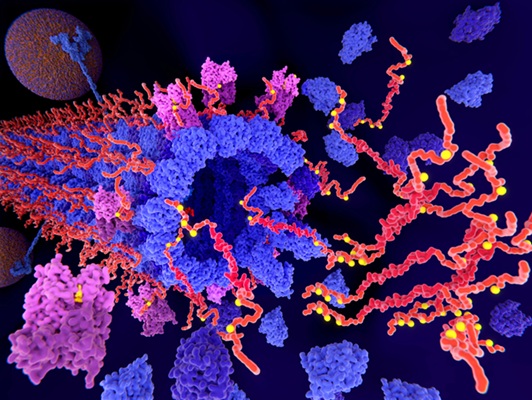Skin-Based Test to Improve Diagnosis of Rare, Debilitating Neurodegenerative Disease
Posted on 24 Mar 2025
In neurodegenerative diseases, misfolded proteins, such as alpha synuclein or tau, accumulate in brain and nervous system cells, leading to cell damage and neurodegeneration. While researchers have successfully detected these misfolded proteins in cerebrospinal fluid obtained via lumbar puncture, this method is not always accessible, and some patients are unable to undergo the procedure. As a result, patients are typically diagnosed based on their symptoms and clinical presentation, which can lead to misdiagnoses, especially for rarer conditions like progressive supranuclear palsy (PSP). For instance, some PSP patients might currently be misdiagnosed with Parkinson’s disease and enrolled in trials targeting the alpha synuclein protein—potentially skewing the trial results.
Researchers at the University of Toronto (Toronto, ON, Canada) have now developed a skin-based test that detects signature features of PSP, offering the potential for a minimally invasive diagnostic approach. This test, described in a recent issue of JAMA Neurology, could enable earlier and more accurate diagnosis of PSP than current methods allow. Previously, the research team developed a test to detect misfolded alpha synuclein in the skin’s nerves of people with Parkinson’s disease. This assay has been validated, and the team hopes it will eventually be used in clinical trials, although it is not yet available for clinical diagnoses.

The team sought to extend this technology to PSP, a disease caused by misfolded tau proteins, for which there is currently no cure, although certain symptoms can be managed with treatments for other diseases like Parkinson’s. Using the same method as the alpha synuclein test, the researchers created a test capable of detecting a misfolded tau sequence specific to PSP. They reported, for the first time in the literature, that disease-associated tau protein can be identified in the skin of living PSP patients with high accuracy. When examining skin biopsies from patients with PSP, multiple system atrophy, corticobasal degeneration, Parkinson’s disease, and healthy controls, the researchers found misfolded tau in most PSP patients, but much less frequently in those with other neurodegenerative diseases.
Importantly, misfolded tau was not detected in patients with Parkinson’s disease or healthy controls. The test exhibited 90% sensitivity and 90% specificity, making it a reliable diagnostic tool. The researchers believe this test could be part of a broader panel of blood and skin-based tests, combined with clinical data, to help clinicians make more precise diagnoses and recommend more appropriate clinical trials. The assay is now undergoing further validation in a clinical trial at five PSP centers across North America and Europe. The team in Toronto is also continuing to study the assay’s practicality and convenience for use beyond major research centers.
“This assay is important for assigning patients to the correct clinical trials, but it will be even more important in the future as researchers develop targeted, precision treatments for PSP,” said Ivan Martinez-Valbuena, a scientific associate at the Rossy Progressive Supranuclear Palsy Centre at UHN’s Krembil Brain Institute and U of T’s Tanz Centre for Research in Neurodegenerative Diseases.














